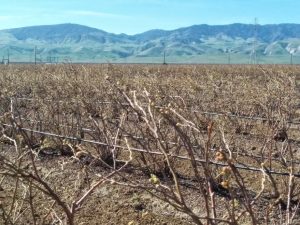Get inspired to EAT LOCAL every day!
Spring is when seasonal eating really gets fun! Longer days and warming temps launch a burst of new life in local fields – plus an ever-growing smorgasbord of delicious fresh flavors, from bold and earthy asparagus to sweet and luscious strawberries.
Before winter even recedes, our produce growers are using sustainable methods to prepare their fields and orchards. They’re transplanting seedlings from their greenhouses out into naturally rich soils. Other seeds they sow directly in the ground.
Meanwhile, our livestock farmers continue to care for their animals and our food artisans keep on making and baking their yummy creations. And you can count on Seasonal Roots online farmers market to deliver all your favorite fresh local foods to your doorstep, whatever they may be.
So check out our Guide to Eating Seasonally: Spring Edition. We’ve got tips, recipes, and more to take your springtime meals to the next level!
IN THIS ISSUE
- Benefits and Uses of Spring’s Burst of Goodness (plus recipes!)
- Why We Can’t Live Without Local Family Farms
- How to do Meal Planning in 4 Easy Steps
- Local Partner Spotlight: Agriberry
Benefits and Uses of Spring’s Burst of Goodness
Below are some of the health benefits of seasonal eating in springtime. Every tasty bite of spring’s harvest delivers fiber and so much more!
Because all our produce is harvested nearby within days of home delivery, it gets to you fast while it’s still packed with nutrients and flavor. And so good for you! Much better than produce that has to travel a long way to the grocery store.
Need some new ideas for turning all this local bounty into fresh, delicious meals? Check out some of the Seasonal Roots team’s favorite recipes HERE. Also check out some tips for Spicing Up Your Spring Eating from our guest blogger, Diana Kessler, a.k.a Urban Earth Lady.
Asparagus
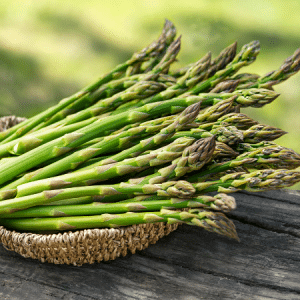 Benefits: Vitamins C, A, B6, folate, folic acid, potassium, fiber, and thiamine, with antioxidant and anti-inflammatory properties.
Benefits: Vitamins C, A, B6, folate, folic acid, potassium, fiber, and thiamine, with antioxidant and anti-inflammatory properties.
Uses: Roast or grill tossed in olive oil, steam, or sauté. Serve alone or add to salads, stir-fries, pastas, and soups.
Virginia/Maryland harvest season: April-June
Beets
Benefits: Vitamin C, folate, potassium, magnesium, with antioxidant and anti-inflammatory properties.
Uses: Roast alone or with other root veggies as a side or add to salads.
Virginia/Maryland harvest season: Year-round
Bok Choy
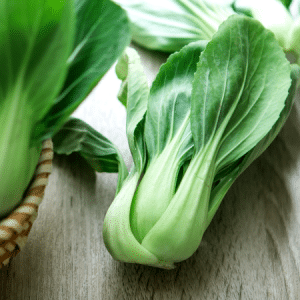 Benefits: Vitamins C, E, B6, beta-carotene, folate, selenium, and the flavonoid quercetin, with antioxidant and anti-inflammatory properties.
Benefits: Vitamins C, E, B6, beta-carotene, folate, selenium, and the flavonoid quercetin, with antioxidant and anti-inflammatory properties.
Uses: Sauté, steam, grill, or roast. Add to stir-fries, soups, salads, egg rolls, and more. Can use in place of any other green leafy veggie.
Virginia/Maryland harvest season: March-June, plus fall
Broccoli
Benefits: Vitamins A, C, E, K, folate, calcium, magnesium.
Uses: Sauté, steam, grill, or roast to release the sugars. Serve as a side or add to soups, stir fries, and one-pan dishes. Eat ‘em raw in salads or as a dip delivery vehicle.
Virginia/Maryland harvest season: May-June, plus fall
Carrots (bunched)
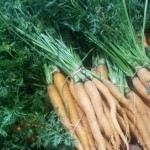 Benefits: Vitamin A, potassium, lutein, with antioxidant properties.
Benefits: Vitamin A, potassium, lutein, with antioxidant properties.
Uses: Delicious fresh or supercharge the sugars by roasting or grilling. Add to stews and soups or serve raw as a snack or with salads and dips.
Virginia/Maryland harvest season: Year-round
Dandelion Greens
Benefits: Vitamins A, E, K, calcium, iron, riboflavin, carotenoids, potassium, with antioxidant properties.
Uses: Sweetest in early spring, boil for a few minutes to reduce bitterness. Sauté, steam, or braise. Serve as a side or add to stir-fries, casseroles, soups, pastas, and salads.
Virginia/Maryland harvest season: March-June
Fennel
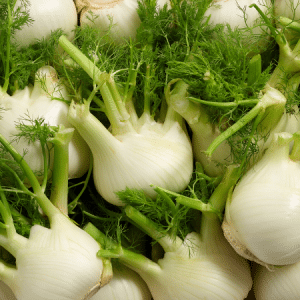 Benefits: Vitamin C, calcium, iron, magnesium, manganese, potassium, with antioxidant properties.
Benefits: Vitamin C, calcium, iron, magnesium, manganese, potassium, with antioxidant properties.
Uses: Roast, sauté, grill. Serve as a side or add to soups, stews, casseroles, stir-fries, and salads.
Virginia/Maryland harvest season: January-May
Garlic Scapes and Spring Garlic
Benefits: Vitamins A, C, K, and loaded with calcium, plus iron.
Uses: Dice raw in a vinaigrette or grill, steam, or sauté. Add to any savory dish!
Virginia/Maryland harvest season: March-April
Lettuce (Fields and Mixes)
Benefits: Vitamins A, B6, C, E, K, calcium, iron, magnesium, phosphorus, potassium, sodium, zinc, plus thiamine, riboflavin, niacin, and folate.
Uses: A salad building-block topped with fruits or veggies, nuts or cheeses. Also works as a wrap.
Virginia/Maryland harvest season: March-June, plus fall
New Potatoes
Benefits: Vitamin C, B6, potassium, folate.
Uses: Roast, grill, boil. Serve hot or cold as a side or add to stews, soups, or salads.
Virginia/Maryland harvest season: January-April
Peas (Garden, Snap, and Snow)
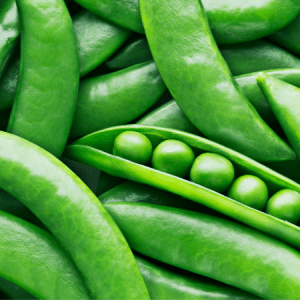 Benefits: Vitamins A, C, K, folic acid, iron, calcium, zinc, copper, manganese, and phytosterols.
Benefits: Vitamins A, C, K, folic acid, iron, calcium, zinc, copper, manganese, and phytosterols.
Uses: Delicious raw or cooked – steamed, stir-fried, or boiled – hot or cold. Eat as a snack, with dips, in salads, or add to stir-fries, soups, and stews.
Virginia/Maryland harvest season: May-September
Radishes
Benefits: Vitamin C, folate, calcium, magnesium, phosphorus, and potassium.
Uses: Sauté, roast, or enjoy raw. Serve as a side or add to salads and other dishes, cooked or raw.
Virginia/Maryland harvest season: March-November
Spring Onions
Benefits: Vitamin K, phytochemicals.
Uses: Add raw to salads, dips, salsas, and soups, or cook them in stir-fries.
Virginia/Maryland harvest season: March-November
Strawberries (field)
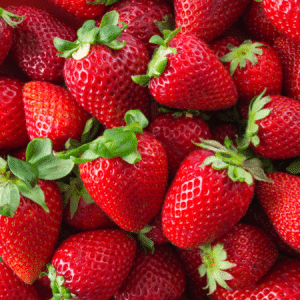 Benefits: Tons of vitamin C and lots of antioxidant properties! Plus potassium, folate, calcium, and magnesium.
Benefits: Tons of vitamin C and lots of antioxidant properties! Plus potassium, folate, calcium, and magnesium.
Uses: Fresh or baked. Great as snacks, even better with a piece of chocolate. Toss onto salads and desserts, add to smoothies, or cook in fruit compotes to serve with meats.
Virginia/Maryland harvest season: April-July
Why We Can’t Live without Local Family Farms
What happens when faraway industrial growers can’t send us food?
When it comes to supplying safe food on a reliable basis throughout a crisis – not to mention maximizing nutrients and flavor – industrial agriculture can’t always deliver.
A few years ago, our founder and Head Veggie Fairy, Duane Slyder, visited California’s Tulare County (pictured above). He went with the Northern Neck Growers Association and 21 of Virginia’s finest farmers. They toured huge mono-crop fields, each one full of a single crop as far as the eye could see – almond trees or sweet potatoes or lettuce or you name it.
Tulare County is America’s top agricultural producing county, even though its natural state is desert-like. Average rainfall is just 7 inches. When intensive farming started there just 50 years ago, farmers relied on snowfall in the surrounding Sierra Nevada mountains to provide water for their summer crops.
But then came years of severe drought. There wasn’t much snow to be seen when Duane and the Virginia farmers were there.
Industrial-scale agriculture has its limits
While visiting one of those big industrial growers, a field manager walked with them through a 1,500-acre lettuce field. The field manager said that with the drought, he and others had been denied access to the mountain snow-melt water they’d always relied on. They were forced to get all their water from wells, which were drying up. With so little experience on the land, they didn’t know what they were going to do in the long term.
This is a company that ships its lettuce everywhere. Duane even remembered buying a couple of their lettuce heads at a Richmond Kroger once, during Seasonal Roots’ winter hiatus.
California’s long drought was a warning then and still is now: In the future, America may not be able to rely on faraway places like Tulare County to provide so much of the nation’s produce. Experts say California will be short of water forever.
The pandemic gave us another warning: global supply chains work great… until they don’t. When supply chains get hit with a crisis like a pandemic, the result is empty store shelves.
That’s why we need local sources for critical supplies like food.
Virginia farmer Joe Step was one of the local farmers who went along on that California trip. His family has been farming their 120 acres in Virginia for 130 years, growing broccoli, barley, and cucumbers. He plans to keep on farming.
Family farmers like Joe know how to survive droughts and grow produce sustainably with the future in mind. And because they’re local, we have no problem delivering their produce to you within a couple of days, dirt to doorstep®, while it’s still full of nutrients and flavor. Even during a drought or a pandemic.
Support local farmers today… so they’ll be here when we need them tomorrow.
This is why Duane founded Seasonal Roots: To make sure local farmers who know how to feed us can keep on farming… and make sure you can keep on getting the freshest food possible. That’s only possible when it’s local.
Thank you for making this important local food mission part of your life!
4 Steps to Making Meal Planning Easier
1. Throw away the rules (not the fresh veggies)! Figure out a meal planning system that works for your family, even if you’re a family of one. Chances are, prefabricated plans won’t fit your life perfectly and that’s okay. You CAN change it.
2. Before you shop the grocery store, shop at home! Being aware of what you have on hand saves money and reduces waste. Take stock of what you have and what you ordered from Seasonal Roots, and plan your meals accordingly. Prioritize perishable items first. Feel free to make changes in recipes to swap in your favorites.
3. Each week, look ahead at your family’s schedule. Even in the most predictable households, schedules are always changing. Maybe there’s an odd evening appointment coming up. Just a few minutes of planning ahead can help reduce some of the stress of last-minute meal planning or prep.
4. Each member of your family can be helpful in the process. It’s corny but true: Teamwork makes the (meal planning) dream work! If your spouse/partner doesn’t enjoy cooking, have them help with shopping or choosing meals. Get children involved and they’ll learn valuable life skills, like where their food comes from. Involvement gives ownership regardless of age.
Taking these four steps will help you transition from eating on the fly to knowing exactly what’s for dinner – something local, nutritious, delicious, and a good fit for your real life.
To get started, check out these free meal planning resources. Just remember: Keep the rules that work for you and throw the rest away.
Meals Made Simple – New York Times best selling author Daniel Walker
100 Days of Real Food – Meal Plans by Dawn Perry
Local Partner Spotlight: Agriberry
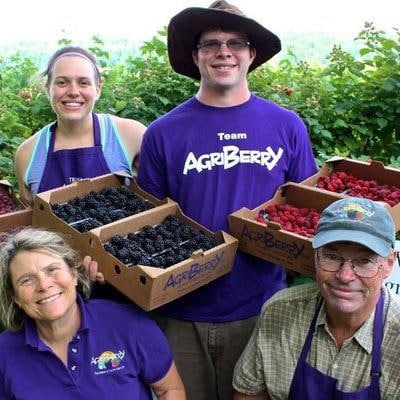
Anne and Chuck Geyer met while researching berry production at the University of Maryland. In 1982, they went to work on a 60-acre berry farm where they raised three children along with the berries.
In 2008, the Geyers moved to Hanover County to start their own berry farm, Agriberry. Today, Anne, Chuck, their adult children, and extended family all work together to make Agriberry a fruitful operation.
For the better part of four decades, the Geyers have been farming with the future in mind. They’ve been good stewards of their land, practicing sustainable, honest farming. And every summer they hire local teens so the kids can get hands-on experience in the field, understand where their food comes from, and figure out if a future in farming is right for them.
Meanwhile, the Geyers family’s yummy, antioxidant-rich harvests are keeping berry lovers of all ages healthy and happy!
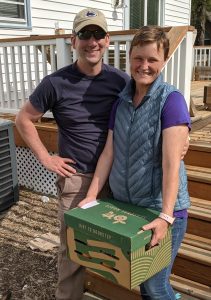
“Right-from-the-farm groceries – you can really TASTE THE DIFFERENCE.”
– Hamilton, Seasonal Roots member
About Seasonal Roots
Since 2011, Seasonal Roots’ online farmers market has connected Virginia families with local family farmers who use sustainable, humane practices. Our neighborhood market managers – who believe in living better through scrumptious, healthy eating, being kind to animals, protecting the environment, and spreading joy – home-deliver freshly harvested produce, pastured eggs, grass fed dairy and meat, plus artisan fare. We empower our members to eat better and live better with more nutritious, flavorful food that’s good for us and good for the planet. More info at seasonalroots.com.

